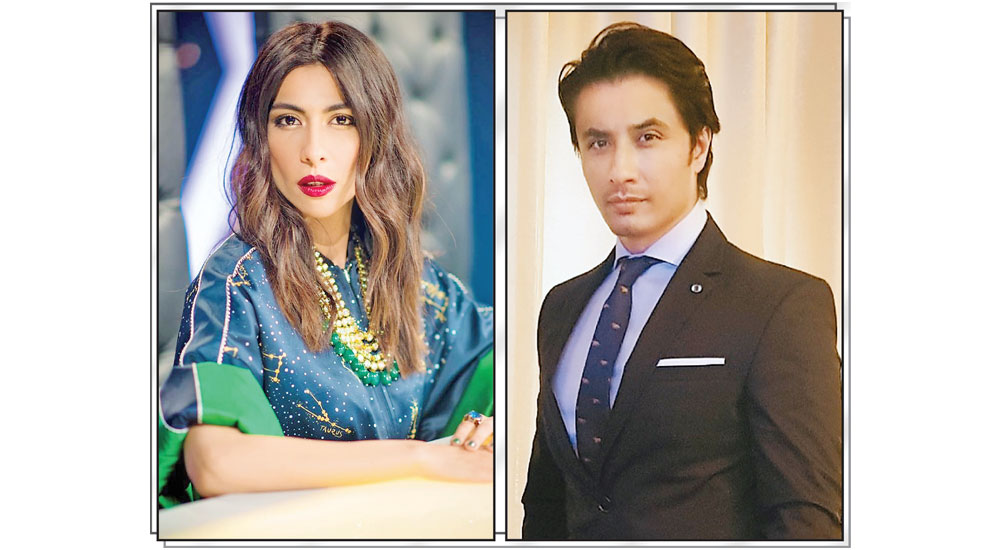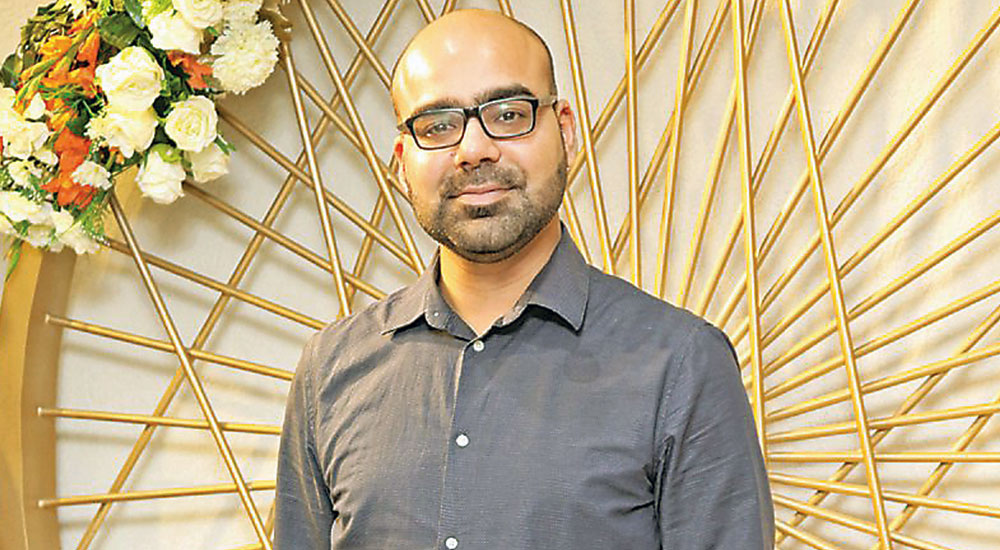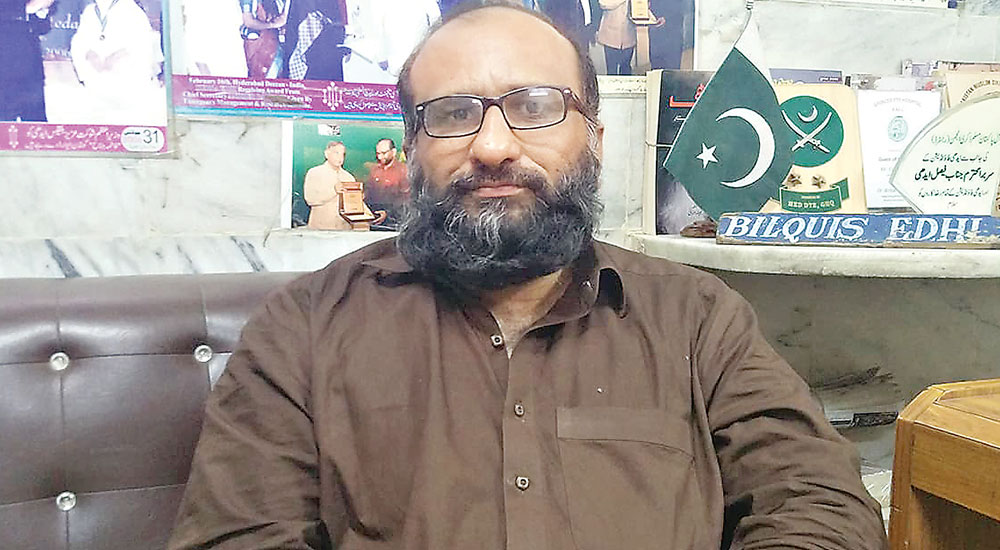SAKINAN-E SHAHR-E- QUAID PRESENTS INTERNATIONAL POETIC SYMPOSIUM
- 16 Apr - 22 Apr, 2022
April 19. It was just another monotonous late noon at work. Shaking off the post-lunch comatose, I scrolled down my Twitter feed forcing my brain to start ticking again. And it did tick in when a tweeting birdie flew in. It was Meesha Shafi and she had a lot to say, “Today, I speak up because my conscience does not allow me to be silent anymore,” her tweet read, continuing into allegations against the Pakistani superstar, Ali Zafar.

Alarm bells rang loud, with the slowly building chant of “no, no, no!” in my head. Not him, not Ali Zafar. Not the only Pakistani actor I had idolised for the longest time, who’s Jhoom Jhoom and Channo had been a childhood jam for me and many others.
In a matter of 10 minutes, blogs and news websites began to break the story; it was a field day for entertainment media. This was huge. There was no denying Meesha’s success as an artiste, but her stardom paled next to the colossus star power of Ali Zafar; who had very recently delivered a wooing performance at the PSL opening in Dubai where he literally flew into the stadium amidst of a teaser of his upcoming high-budgeted venture, Teefa in Trouble.
Wits were astray. Emotions blaring high. Netizens were divided and fans torn apart. Everyone had something to contribute to the story.
Several hours later that day, the Channo singer categorically denied "any and all claims of harassment lodged by Ms Shafi."
Amidst more accusations angled at Zafar, a legal war had officially commenced. Rest is history.
The controversy unwittingly made a strong attempt to “break the culture of silence” as Meesha wanted to. The #MeToo hashtag has galvanised stories from all quarters, with the masses taking to their social media feed to voice their personal stories of workplace harassment and instances of sexual misconduct.
#MeToo on October 10 heightened to a blaring crescendo when former journalist Urooj Zia accused Faisal Edhi of sexual harassment. In a Twitter thread, Zia narrated her encounter with Faisal at a fundraising for a communist party and how he attempted to harass her. “He offered to drop me [back to work, which was nearby] to which I agreed. Here was a guy who was much older than me, had behaved well, I didn’t see a reason to refuse. He also asked for my number ‘for further discussion,’ and I obliged to his request,” she says.
“I thanked him when we got to the office building. But as I started to get off, he held out his hand. I shook it politely, and at that point, he grabbed my hand tightly and tried to kind of pull me back into the van. When he pulled even harder, I angrily took my arm back, and walked off.”
When approached by the media, Faisal as predicted thwarted all allegations and cited it as means of defaming the Edhi Foundation. At first, Faisal denied even knowing the journalist, saying, “I don’t even know the girl. And I don’t even recall meeting her.” However, in other statements, Faisal said, “She’s mentally disturbed. She made similar claims regarding her father as well in 2014, according to my resources.”
While everybody was still recovering from the aftershocks of Zia’s accusation, the Internet again erupted into a shocking frenzy with many women coming out to accuse comedian and social media star, Junaid Akram, for sexual harassment.

It was famed TV host Rabia Anum who first prompted the discussion, admitting that many women have approached her with pleas of help concerning sexual harassment attempts by Junaid Akram. However, all women who have accused Akram, wish to stay anonymous, claiming that they are threatened by the social media star who, they alleged, passed sleazy, sexually suggestive remarks at her and urged her to share intimate pictures.
Junaid Akram denies all allegations, tweeting, “I would like to state categorically that the assertions made in such tweets are absolutely false, and that I intend to pursue my legal remedies so as to protect myself.”

It is a sad reality check, when we cannot say that the quantum leap of the movement in Pakistan has been accepted with the most encouraging arms and liberated mind sets. Supported by few quarters, it still has a long, winding road to tread on till it finally shines in the clearing. Many factions maintain that #MeToo is exploited by women at large to socially and politically attack and shame men on shaky grounds, lacking concrete evidence. Staging their arguments on the principle of “innocent until proven guilty” unified echoes of #MeToo’s acceptance is still in works. However there is a fine line entailing a dilemma over who-to-trust and outright shaming the victim for not speaking up before; the latter being utmost deplorable. Amongst the most recent accounts of victim shaming was one notorious interview of Sadaf Kanwal on the show Tonite with HSY. Kanwal in a manner which reeked of misinformation and perilous insensitivity made a statement, “You know aap ke sath #MeToo jab ho, tab bol do. Baad mein aap ko yaad araha hai #MeToo, So I think jab ho bol do. [You know, when you have a #MeToo incident, say it then. Why are you remembering it later? I think when it happens you should say it.]” The supermodel was called out at her remarks, with many preaching how victims are unable to come out with their harrowing stories due to societal fears amongst many things. Often victims seek an impetus to come forward, for it takes nothing less of liquid courage to publicly admit to being a victim of these loathsome acts. #MeToo in Pakistan has kicked off for a tempestuous flight, and we hope to see it soar higher, soundly. But before that a change of mindsets and acceptance is needed. In a liberating tweet author Bina Shah says, “Instead of writing "me too" on your FB walls and twitter feeds, find your harasser and write "you too" on his.” •
COMMENTS